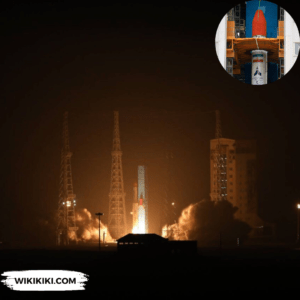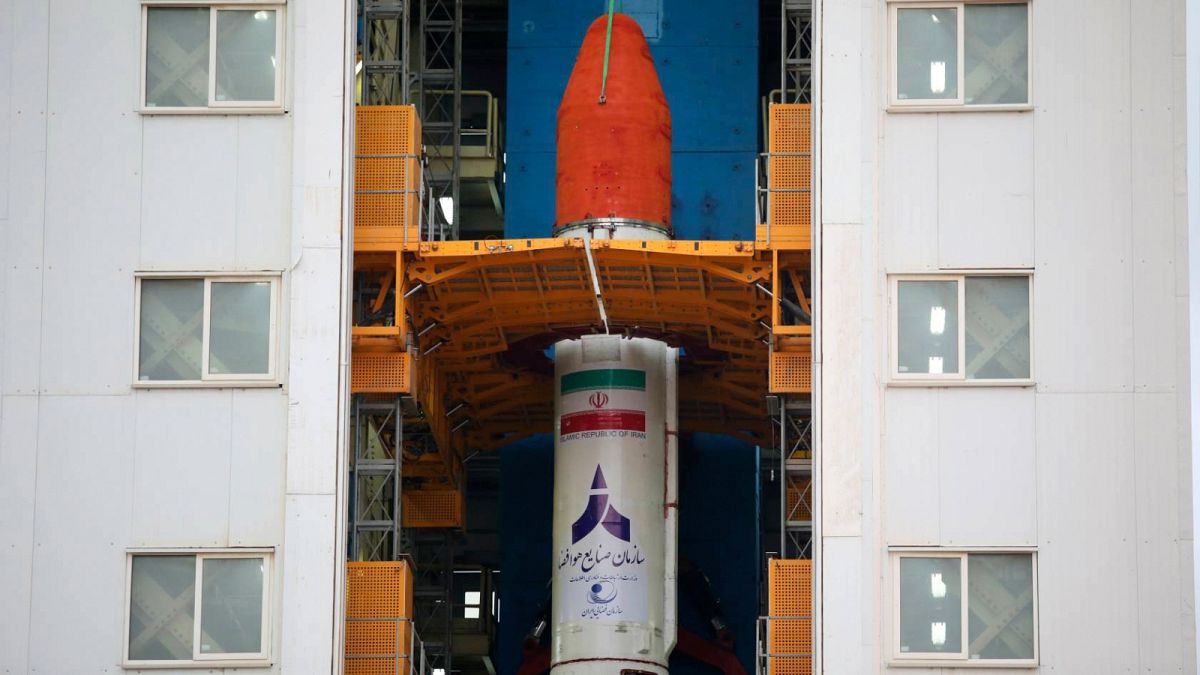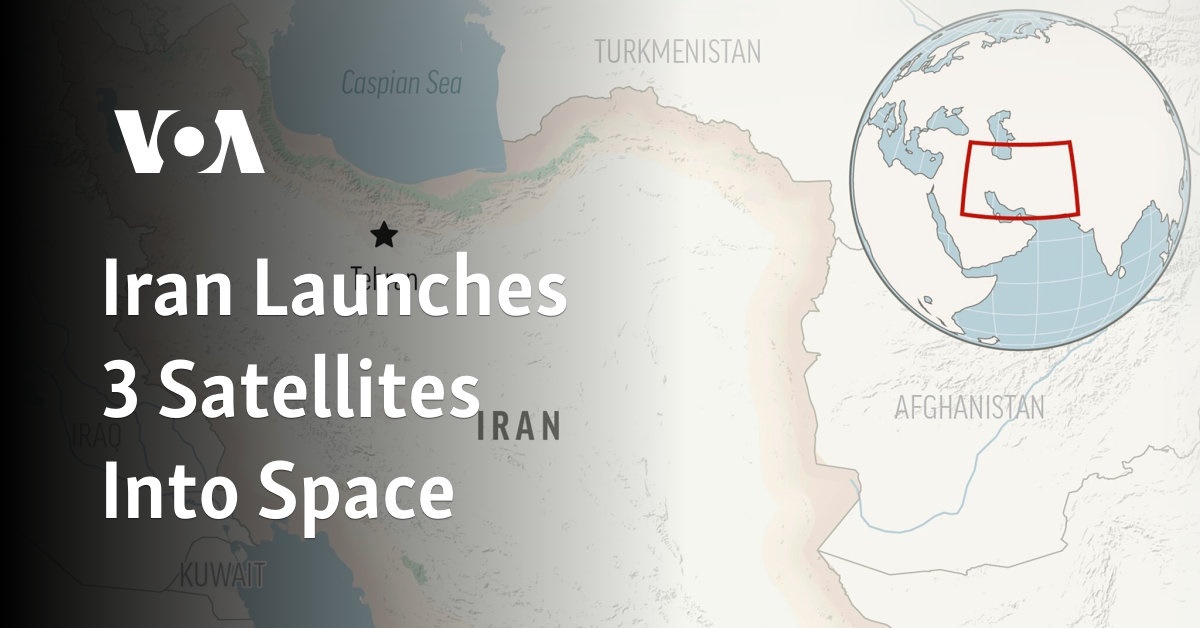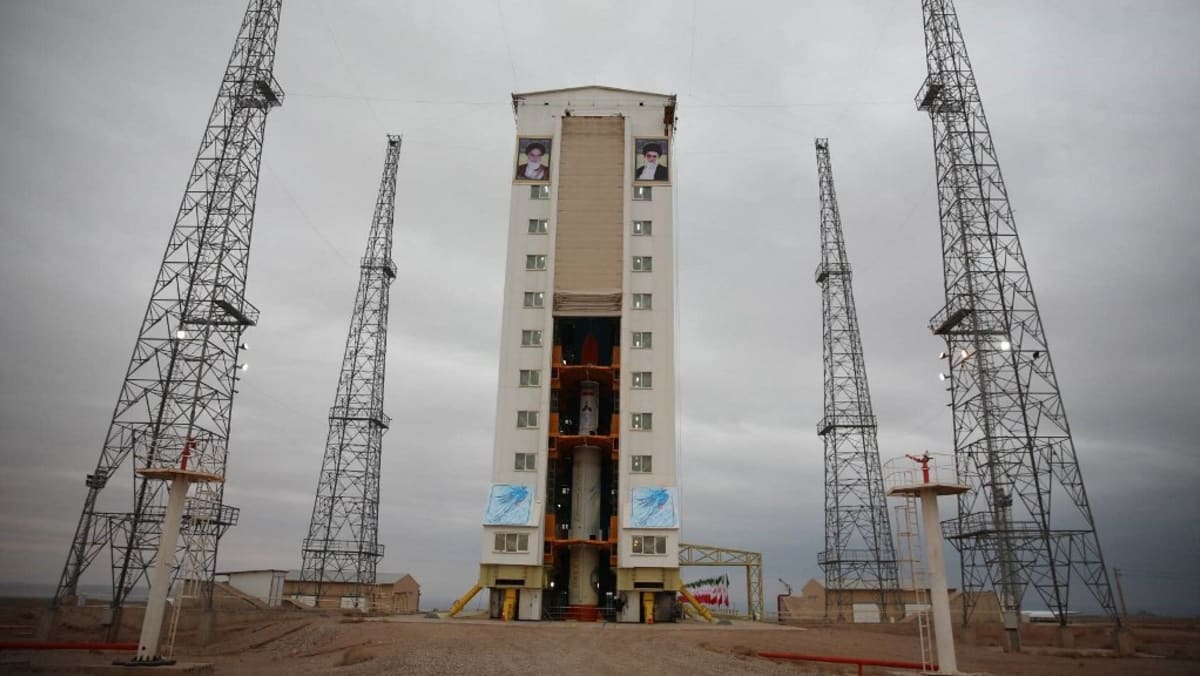On January 28, 2024, Iran successfully launched three satellites into space using its Simorgh rocket. This accomplishment has concerns among Western nations, particularly the United States, regarding Tehran’s ballistic missile capabilities.

Also Read: Mars Rover Data Confirms Ancient Lake Sediments
The launch comes at a time of tensions in the Middle East, fueled by Israel’s conflict with Hamas in the Gaza Strip.
The state-run IRNA news agency reported the accomplishment, addressing the utilization of Iran’s Simorgh rocket for the launch.
Iran’s state-run IRNA news agency reported the successful launch of three satellites – Mahda, Kayhan-2, and Hatef-1.
The Mahda satellite, weighing approximately 32 kilograms, is described as a research satellite. The Kayhan-2 and Hatef-1 are nanosatellites designed for global positioning and communication purposes, respectively.
The launch made the first successful use of Iran’s Simorgh rocket, a two-stage, liquid-fueled vehicle, after a series of five consecutive failures.
Iran’s civilian space program, particularly the Simorgh rocket, has faced numerous technical challenges in recent years.
Also Read: GJ 9827d: Water Vapour Found On Exoplanet By NASA’s Hubble Telescope
Previous failures included fatal accidents, explosions, and launchpad rocket mishaps, especially during the tenure of former U.S. President Donald Trump.
The United States has expressed about Iran’s space program, specifically the Simorgh rocket. The U.S. intelligence community’s 2023 worldwide threat assessment report the Simorgh as a possible dual-use rocket.
According to the report, the development of satellite launch vehicles by Iran shortens the timeline for the country to develop an intercontinental ballistic missile, as similar technology is employed.
The U.S. has criticized Iran’s satellite launches, contending that they violate a UN Security Council resolution. The expiration of UN sanctions related to Iran’s ballistic missile program in October 2023.
Also Read: Iran Successfully Launches Sorayya Satellite into 750 km Orbit
The successful satellite launch comes amid tensions in the Middle East, with Israel engaged in a conflict with Hamas in the Gaza Strip.
Iran-backed groups, such as Hezbollah in Lebanon and Houthi militants in Yemen, have been involved in activities that impact the region’s stability.
The launch also coincides with the expiration of UN sanctions related to Iran’s ballistic missile program, providing Tehran with more freedom in its space activities.
Western nations, including France, Germany, and the United Kingdom, have condemned Iran’s satellite launch, addressing concerns about the dual-use capability that could contribute to the development of ballistic missiles.
Iran has maintained that its space program is for peaceful, civilian purposes. Isa Zarepour, Iran’s Information and Communications Technology Minister, confirmed the successful transmission of signals from the Mahda satellite.
Tehran says that it has the legitimate right to advance technologically in the aerospace field for peaceful purposes.
Also Read: James Webb Space Telescope Discovers the Oldest Black Hole Ever























